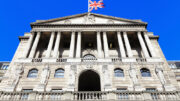Recent stress tests conducted by the Bank of England have raised concerns about potential financial instability. The results unveiled a worst-case scenario featuring a plunge in house prices by one-third, a surge in inflation to 17%, soaring interest rates to 6%, and a deep recession.
These tests were carried out on the UK’s most prominent banks to gauge their ability to endure an economic crisis, characterised by skyrocketing inflation and plummeting property values. This annual exercise is crucial in identifying latent frailties in the banking system that could imperil the nation’s financial security, rather than being a forecast of probable economic outcomes.
Following these tests, the Bank of England has upheld its rate-raising cycle, initiated at the end of 2021. This trend has led to escalating mortgage rates, depreciating house prices, and the devaluation of government and corporate bonds.
Inflation remains a formidable issue, even though the overall rate of price increases has marginally decelerated to 8.7%. However, food inflation remains high, with staples like bread, cereals, and chocolate witnessing an 18.3% surge. Meanwhile, the core CPI inflation marked an increase from 6.8% in April to 7.1% in May, the highest since 1992.
In a bid to temper price inflation, the Bank of England has already raised the interest rates thirteen times, pushing it to 5%, with further increases anticipated.
The recent adverse economic conditions have indeed cast a shadow over house prices. Although the drop is not as severe as one-third, the decline could potentially steepen if the interest rates continue to ascend, warns The Resolution Foundation. The thinktank predicts that the residential property market could face a 25% slump if the Bank of England persists in amplifying the base rate.
This prediction emerges as household wealth has seen a £2.1 trillion dip over the past year due to the rising interest rates. With the bank’s Monetary Policy Committee scheduled to meet in early August, economists are anticipating further escalations.
The thinktank, in its latest report, outlines the potential winners, primarily among the younger generation, and the losers if the interest rates continue to rise. The research also explores the impact of such hikes on household wealth and the possible scenarios in the “new normal” of elevated rates.
This report asserts that the house price to earnings ratio could dwindle from last year’s peak of 8.9 to 5.6, unseen in two decades. This could translate into a 25% drop in house prices over five years.
The UK’s unprecedented wealth boom has seen household wealth escalate from around 300% of national income in the 1980s to 840% (£17.5 trillion) by 2021. However, Ian Mulheirn, a research associate at the Resolution Foundation, warns that rapid interest rate hikes have curtailed this boom and have instigated the most significant fall in wealth since the war, amounting to £2.1 trillion.
Mubin Haq, CEO of abrdn Financial Fairness Trust, opined that the short-term hardships of higher interest rates for mortgage holders could yield long-term benefits for the younger generation aspiring to own homes and save for their pensions. Rising interest rates could potentially lead to a fairer wealth distribution by reversing the wealth gaps witnessed in Britain in recent decades.









Be the first to comment on "House Prices Threatened by a Potential 25% Drop, Says Resolution Foundation"